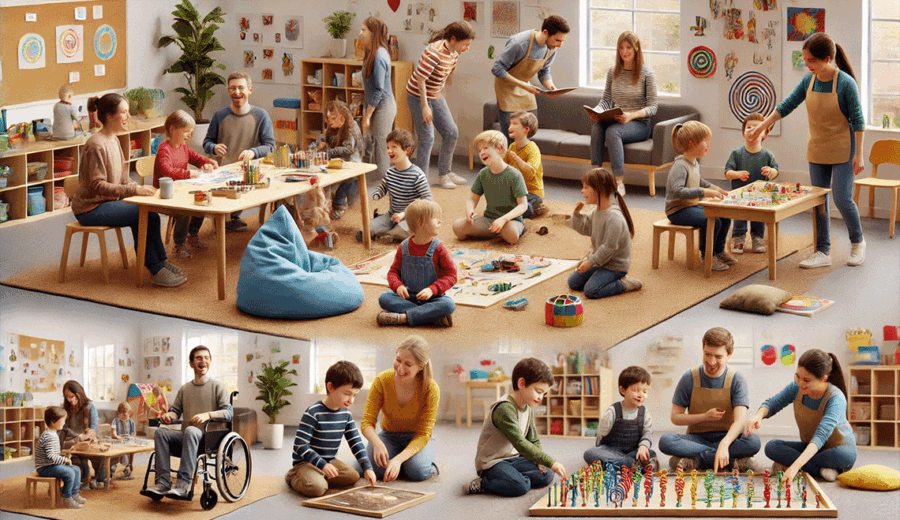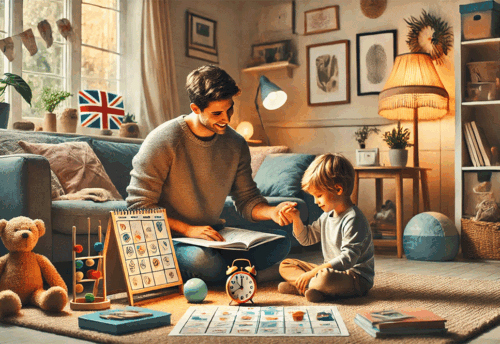
Building Social Skills in Autistic Children
Building Social Skills in Autistic Children: Activities and Strategies in the UK
Social skills are vital for developing meaningful relationships and navigating everyday life. For autistic children, these skills often require intentional teaching and practice. In the UK, a wealth of resources, strategies, and programs are designed to support autistic children in building social competencies. This article explores effective activities and approaches to fostering these skills.
Why Are Social Skills Important?
Social skills allow children to communicate, interact, and form relationships with peers and adults. For autistic children, difficulties in interpreting social cues, understanding emotions, and initiating conversations can hinder their social development. Addressing these challenges through targeted interventions can significantly enhance their quality of life.
Strategies for Developing Social Skills
1. Structured Social Skills Training
Social skills training involves breaking down complex social behaviors into manageable steps. These programs may focus on:
- Eye Contact and Body Language: Teaching when and how to maintain eye contact.
- Conversation Skills: Practicing starting, maintaining, and ending conversations.
- Understanding Emotions: Using visuals and role-play to recognize and express feelings.
2. Peer-Mediated Interventions
Pairing autistic children with neurotypical peers can be highly effective. Through guided interactions:
- Autistic children observe and model social behaviors.
- Neurotypical peers learn empathy and inclusivity.
3. Visual Supports
Visual schedules, social stories, and emotion cards help autistic children understand abstract social concepts. These tools provide a clear framework for social interactions.
4. Parent and Caregiver Involvement
Parents and caregivers play a pivotal role in reinforcing social skills at home. Regular practice through games, role-play, or everyday interactions can make skills more meaningful and generalizable.
Engaging Activities for Social Skill Development
1. Cooperative Games
Games that require teamwork, such as puzzles or board games, help children practice turn-taking, problem-solving, and communication.
2. Role-Playing Scenarios
Acting out real-life situations, such as ordering at a café or inviting a friend to play, allows children to rehearse social interactions in a safe space.
3. Arts and Crafts
Creative activities foster collaboration and communication. Group art projects encourage sharing materials, discussing ideas, and complementing each other’s work.
4. Storytelling and Puppet Play
Storytelling sessions, especially with puppets, enable children to explore emotions, practice dialogue, and understand perspective-taking.
5. Sensory-Friendly Activities
Activities like sensory bins, kinetic sand, and water play support both sensory regulation and social interaction. When children are calm and engaged, they are more likely to connect with others.
UK-Based Resources and Programs
1. Autism Family Support Initiatives
Organizations like Autism Family Support in Oldham provide tailored programs such as sensory play schemes and play hubs to build social skills in a supportive environment.
2. Local Support Groups
Parent-led groups and charities across the UK, such as the National Autistic Society, offer workshops and play sessions focused on social development.
3. Specialized Schools
Specialist schools and inclusive mainstream settings incorporate social skill-building into their curriculum, using techniques like peer mentoring and social clubs.
4. Community Events
Events such as autism-friendly cinema screenings or museum days offer opportunities for autistic children to practice social interactions in accommodating settings.
Tips for Success
- Be Patient and Positive: Progress in social skills development can be gradual. Celebrate small victories to keep children motivated.
- Adapt Activities to Individual Needs: Tailor strategies to align with each child’s interests, sensory preferences, and communication style.
- Consistency is Key: Regular practice across different environments helps reinforce skills.
- Collaborate with Professionals: Speech therapists, occupational therapists, and educators can provide specialized guidance and support.





Leave a Reply